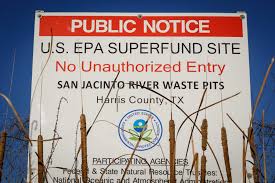
Months after the flooding that hit south Texas, we’re learning the environmental impact is apparently much larger and deeper than the public has been led to believe.
It’s what is being reported by the Houston Chronicle and the Associated Press. They say county, state and federal records show it wasn’t just the fire and explosions that rocked the Arkema chemical plant in an east Houston suburb, but the wider involvement of 500 chemical plants, 10 refineries and nearly 6,700 miles of oil, gas and chemical pipelines in Texas.
The news organization discovered that half a billion gallons of industrial wastewater mixed with storm water surged out of a chemical plant in Baytown. Cancer-causing chemicals such as benzene, vinyl chloride and butadiene were among the tons of industrial toxins released into nearby neighborhoods and waterways.
The Chronicle and the AP reported they discovered more than 100 Hurricane Harvey-related toxic releases and two of the biggest were initially understated.
While Texas regulators have investigated 89 of the incidents, no enforcement actions have been announced.

The explosions and fire that released chemicals at the Arkema chemical plant northeast of Houston comprised one of the biggest incidents. Another was a federal Superfund site flooded by the San Jacinto River.
Initially, the government indicated the impact wasn’t as great as we now know. Even Samuel Coleman, the EPA’s acting regional administrator during the storm now admits maybe the public should have been informed about the worst of dozens of spills.
Of course, the revelation of the monstrous environmental impact has the attention of lawyers such as Rock Owens, supervising environmental attorney for Harris County.
“The public will probably never know the extent of what happened to the environment after Harvey. But the individual companies of course know,” he said.
State officials haven’t exactly been open about what they knew. As the newspaper and the AP reported, the chairman of the Texas Commission on Environmental Quality wouldn’t answer legislators in January when asked to identify the worst spills and locations.





